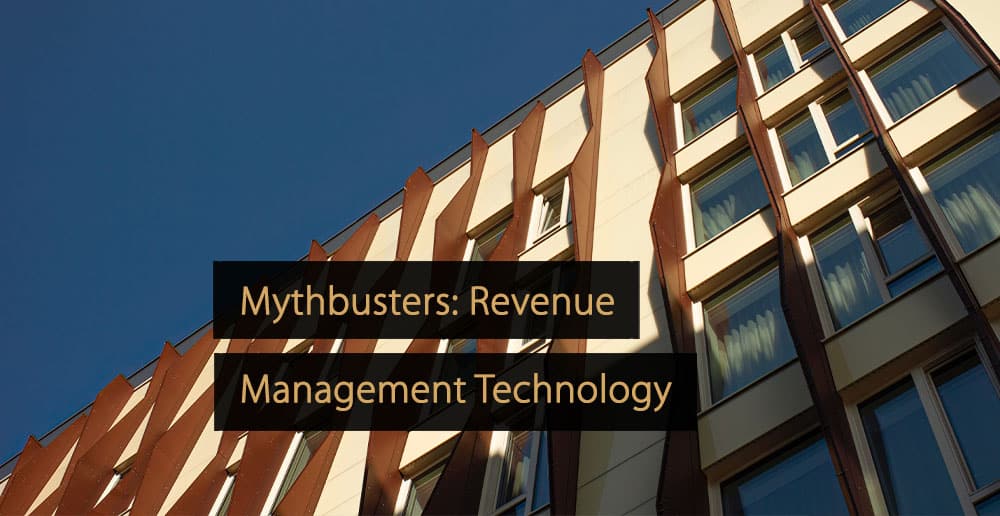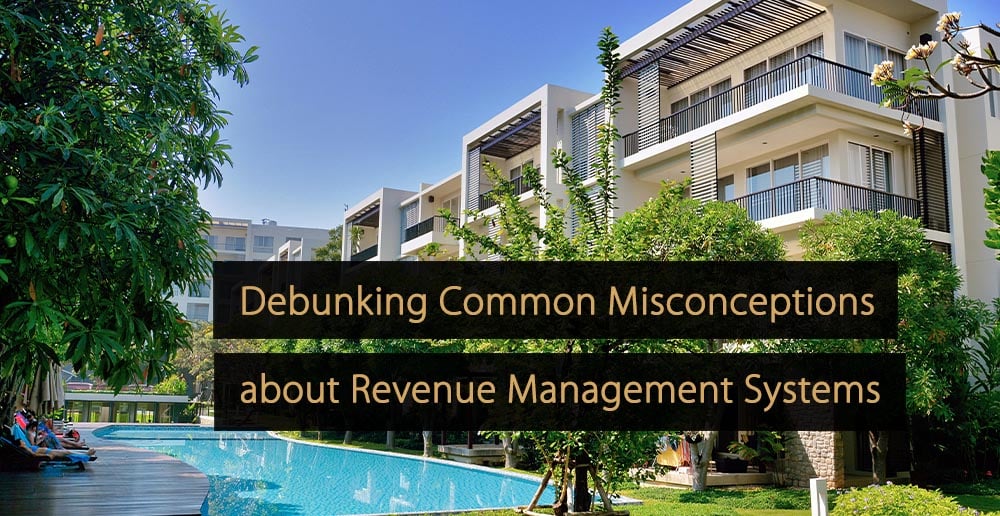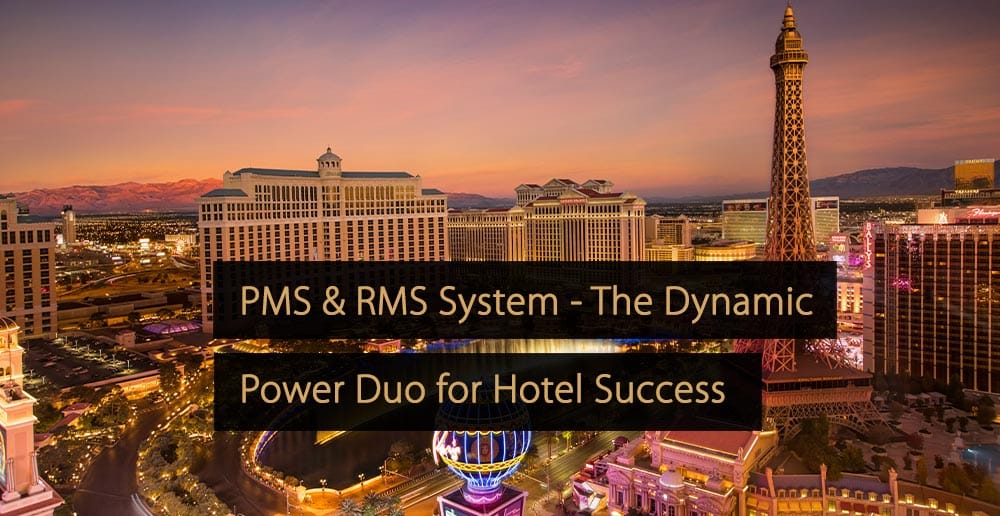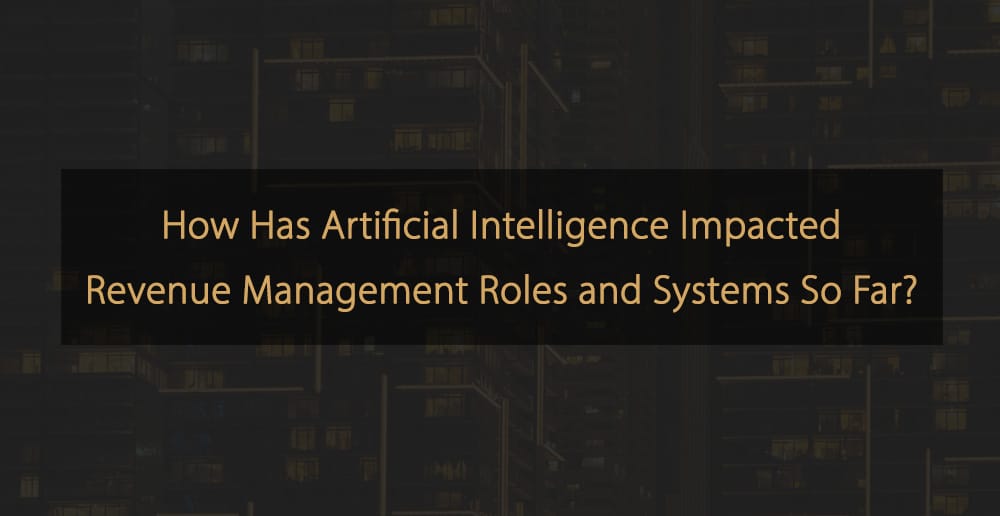Do you run a smaller hotel or B&B that uses only manual processes to manage all your reservations, pricing, and inventory allocation? Have you avoided implementing technology to help support your internal operations because you worried that the solutions would cause more problems than they would solve?
If so, then this article is for you! This article focuses specifically on busting commonly held myths about revenue management technology – which is, in fact, one of the cornerstones of a successful and profitable lodging establishment over the long term.
Technology – especially anything related to revenue and online distribution – can feel overwhelming, but it doesn’t have to be; by having a strong understanding of how and why tech solutions are important and the incredible benefits that they can bring a property (yes, even yours!), you will feel much less overwhelmed by implementing an automated pricing solution.
So, let’s get started…
5 Myths About Revenue Management Technology
Below you will find five common myths about technology usage in Revenue management.
MYTH #1: Revenue management systems (RMS) are only for bigger or branded properties. My smaller, family-run property doesn’t need one.
An RMS is for every type and size of property because they are proven to have huge financial benefits for properties with as few as 10 rooms! Let’s look at some numbers from a case study by RoomPriceGenie.
Did you know that, on average, hotels using automated pricing solutions experience a 22% increase in revenue and a 4% increase in ADR? In dollars, this translates to $70,000 more revenue per year for an average 19-room hotel, making an automated pricing solution a very valuable investment (which will quickly cover the cost of the solution’s monthly payments).
In addition, hotels using an automated pricing solution save 10 hours per week on average, eliminating the tedious, time-consuming process of manually calculating and updating room rates on Excel spreadsheets.
MYTH #2: RMS is too expensive for my smaller property with a minimal technology budget.
When many hoteliers think of RMS, they may think of the big three (you know their names!) and assume that all RMS are the same because they charge thousands of dollars for their solutions. But that couldn’t be further from the truth!
The fact is that every vendor designs their RMS with a different type of property in mind, and their price point reflects that; so, using our earlier example, the big three companies design their solutions with a massive resort or branded chains in mind so, of course, the price tag will match.
The good news is that there are automated pricing solutions designed specifically with the needs of smaller and/or family-run properties in mind, who might not have a huge tech budget – and, of course, their price tags make it much more affordable for any property to use an automated pricing solution to drive conversions and maximize revenue.
MYTH #3: Excel spreadsheets are already working for my property. We’ve been doing it this way for years, so why fix something that isn’t broken?
Excel has probably worked for you for years, but one important thing to remember is this year (and the coming years) are not the same as the years that came before. After the huge challenges of the pandemic, everyone, globally, is realizing that we are facing a brand-new world – and the same can be said about the hospitality industry. Hotels are now realizing the immense power of technology in its ability to support their operations and identify new revenue opportunities, even when bookings are scarce, or demand is inconsistent. If you’re not adopting new technology at the same rate of your compset, your property will struggle to compete.
Beyond the revenue-related benefits of automated pricing technologies, think of the time savings. 10 hours saved per week means that you need less staff to keep your hotel operating at peak performance, at a time when competition for (the very limited number of) quality staff is higher than ever.
What could you do with those 10 extra hours per week? Imagine how much more time you could spend doing what matters: helping your guests have the best possible experience during their stay.
Myth #4: Too many tech headaches (a.k.a. Integrations… ugh)
One of the most challenging things for hoteliers is getting all your internal operational technology integrated, to enable two-way sharing of your data effectively and in real-time; with many solutions, a two-way integration is impossible, which drastically decreases the ROI and data accuracy offered by each and makes your life sooooo much more complicated.
Many believe that more technology solutions=more tech headaches + more manual data management for you or your team. I understand that this is a real fear that many hoteliers hold, and it’s a valid one… but it’s not an infallible truth. If you choose the wrong solutions, that fear could quickly become a reality, but with the right solution, the opposite is true.
Effective technology is there to support for you, to eliminate time-consuming manual processes, and not create new headaches. It’s there to solve problems, not make new ones. So now the important question is… how do you know you’re buying the “right” solution?
First, you should always be looking for a solution designed with the specific needs of your type or size of property in mind (see Myth #2, above). Once you’ve narrowed down your options, find out which ones can already integrate into your current technology solutions, and from that list, start looking for very important key features:
- Two-way integration (not just one-way) is necessary to update your inventory and reservations in both your online distribution channels and your PMS, in real-time as new bookings are made.
- Whether there is an additional cost for integration of your solutions.
- Frequent data synchronizations: ideally, your systems should update hourly or in real-time to prevent overbooking or other errors from using inaccurate reservation/inventory information.
MYTH #5: I don’t understand the words “artificial intelligence” or “machine learning,” so how will I be able to use a solution that is so high-tech?
This is the great thing about automated pricing solutions: they are designed using such complex technology so that you, the hotelier, don’t have to be a tech genius for it to work. These solutions were designed to do what they know how to do best: the automated collection and analysis of data sets to provide accurate pricing recommendations based on the patterns that it identifies – something that no human (no matter how tech-savvy they are) can do as quickly and accurately as technology can.
The key word here is “automated,” because you can (almost) set it and forget it with the right solution. Your automated pricing solution will continue producing results (more bookings and revenue) as the market changes and supply and demand fluctuates, making pricing your rooms a truly hands-off experience.
Free Guide: Capture More Revenue with Automated Pricing
This guide will explain the concept, strategies, and benefits of automated hotel pricing. You’ll find everything you need to know whether you own a boutique hotel, inn, or hostel, manage a small hotel group, or oversee a collection of vacation rentals. You will learn why automated pricing is the secret to capturing more bookings, room rates, and daily revenue, even while you sleep – that is if you have time for sleep.
Click here to download the guide “Capture More Revenue with Automated Pricing”.
As you can (hopefully) see, using an automated pricing solution will be the future of all successful hotels worldwide. After all, more revenue – Excel spreadsheets + more time to spend servicing your guests’ needs = a true win/win situation for your property.
More Tips to Grow Your Business
Revfine.com is the leading knowledge platform for the hospitality and travel industry. Professionals use our insights, strategies, and actionable tips to get inspired, optimize revenue, innovate processes, and improve customer experience.Explore expert advice on management, marketing, revenue management, operations, software, and technology in our dedicated Hotel, Hospitality, and Travel & Tourism categories.








Your article is very interesting and reflects the reality of hoteliers!